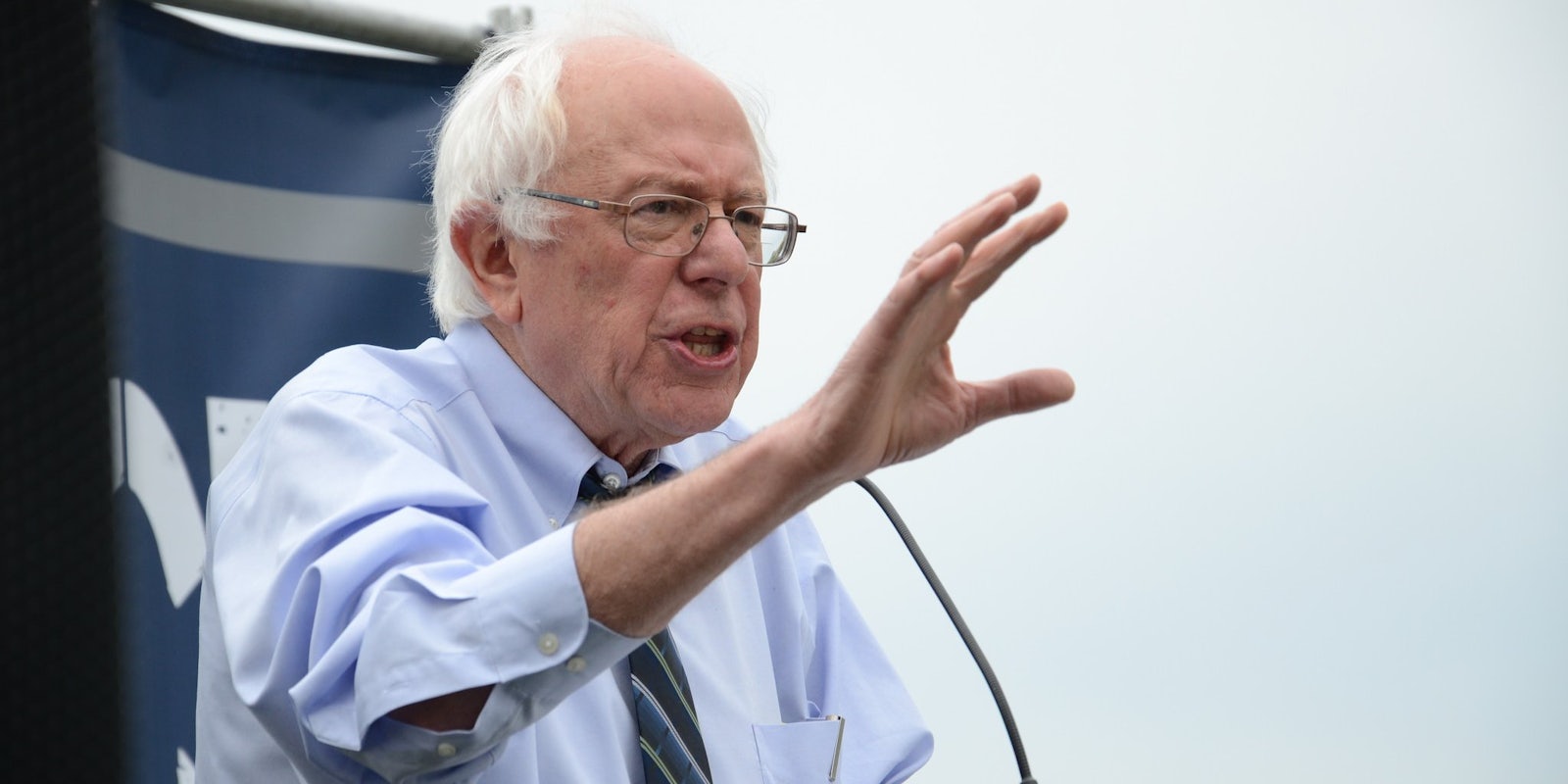Sen. Bernie Sanders woke up Wednesday with about a 5 percent chance of capturing the Democratic presidential nomination, according to prediction markets.
That’s a fact. Predictwise, which aggregates market and polling data to forecast outcomes on Wednesday gave Hillary Clinton has a 95 percent chance of becoming the Democratic nominee, up from 94 percent Tuesday.
But to point out online that Sanders’ odds of prevailing in the Democratic nominating contest are long is to quickly draw the anger of aggressive and active Sanders supporters scouring the Internet for signs of what they label an effort by corporate media of interests to promote Clinton, or GOP fruntrunner Donald Trump, at the expense of their guy. They share with fans of Trump and Texas Sen. Ted Cruz the assumption that the mainstream media is an adversary.
These Sanders supporters make limited distinction between questioning the candidate’s chances and questioning his character. They tend to respond, as they see it, in kind.
Sanders supporters make limited distinction between questioning the candidate’s chances and questioning his character.
Sanders’ wins on Tuesday, including a dominant performance in Idaho, buoy hopes among his supporters. The second half of the primary season looks better for him than the first, with a surfeit of largely white electorates, where Clinton’s dominance among black voters is mitigated. He appears in good shape in upcoming contests Alaska, Hawaii Washington and Wyoming. He can win in Montana, North Dakota and Oregon and Montana, and has a shot in Kentucky, Indiana and West Virginia.
“These decisive victories in Idaho and Utah give me confidence that we will continue to win major victories in the coming contests,” Sanders said early Wednesday.
But Clinton’s Arizona triumph Tuesday stopped Sanders from significant delegate gains. And the frontrunner stands ready to romp in delegate-heavy coastal states: New York, New Jersey, California, Maryland, Pennsylvania, Connecticut, and D.C.
The result is a growing disconnect between Democrats. Mainstream Democrats say it’s time for Sanders to drop out, or at least stop his attacks on Clinton. Sanders fans note that he’s on a hot streak, winning western states. They bristle at calls for his exit from the race.
Prediction markets give Sanders such long odds because he cannot catch Clinton in delegates without crushing her in the remaining contests, something there is no sign will occur.
Sanders says he can win by gaining momentum late, then convince super delegates, who are allowed to switch their support, to back him as the best option to defeat Trump.
Sanders can achieve various goals by staying in the presidential race. Winning the nomination is not one of them.
That is the most likely scenario for him to win the nomination. But that doesn’t mean it is happening. New York, Clinton’s adopted home, gives her a nearly assured win on April 19 that will wipe out any gain by Sanders in delegates from low population western states in coming weeks. Super delegates, who are generally elected Democrats, think Clinton is going to be president. They have every reason to stick with her.
Sanders can achieve various goals by staying in the presidential race. Winning the nomination is not one of them.
It has always been possible to curate your own political reality. People used to do it by reading the news and talking to others who share their views. But the Internet makes it easier. Studies show social media filtering helps polarize voters who self-select into echo chambers of the like-minded. Algorithms used by sites like Facebook and Google to cater to user preferences mean news comes with our biases baked in, reinforcing views we already have.
Clinton, Trump and Kasich fans do this. Everyone does. But Sanders fans, perhaps because of their relative youth and online engagement, seem especially cordoned off.
As Clinton moves to clinch the contest, most Sanders supporters will slowly accept his defeat, and shift their support, if not enthusiasm, to her. But some are as effectively isolated on electronic islands as the Japanese soldiers who needed decades to find out World War II had ended.
Dan Friedman has worked as senior Washington correspondent for the New York Daily News and reported on the Senate and congressional oversight for National Journal. He started his reporting career in Boston. He is a graduate of the University of Pennsylvania and holds a Masters in International Relations from the London School of Economics. Follow him on Twitter @dfriedman33.
Photo via AFGE/Flickr (CC BY 2.0)


